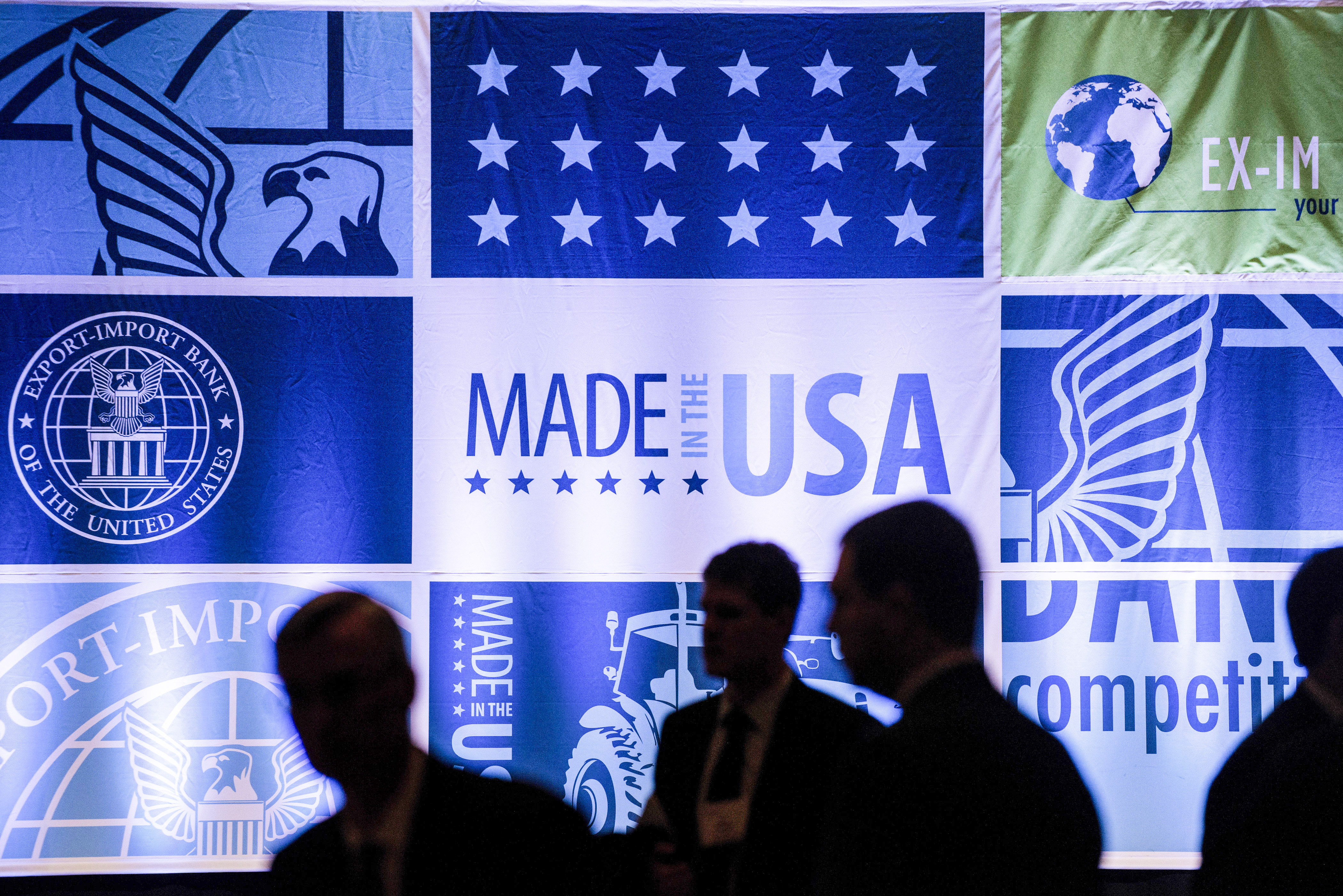It's time to shut down the Export-Import Bank
This has become a fight for the soul of the GOP. Here's hoping the Tea Party wins.


A free daily email with the biggest news stories of the day – and the best features from TheWeek.com
You are now subscribed
Your newsletter sign-up was successful
Today, the House of Representatives is voting on a motion to reauthorize the Export-Import Bank, also known by the gentle nickname "Ex-Im."
The House should vote against the motion. And it should do so for two main reasons: policy and politics.
First, let's get the policy out of the way. Ex-Im makes loans (or offers insurance) to subsidize foreign purchases of U.S. products. Because Ex-Im is backed by the credit of the U.S. government, it can offer very cheap loans. In other words, Ex-Im is a corporate welfare bank, pure and simple.
The Week
Escape your echo chamber. Get the facts behind the news, plus analysis from multiple perspectives.

Sign up for The Week's Free Newsletters
From our morning news briefing to a weekly Good News Newsletter, get the best of The Week delivered directly to your inbox.
From our morning news briefing to a weekly Good News Newsletter, get the best of The Week delivered directly to your inbox.
It's a strange feature of our political system that corporate welfare is opposed by all sides of the political spectrum and yet endures so unabashedly. This is not, or should not be, a partisan issue: President Obama said Ex-Im is a corporate welfare bank and supported its abolition — at least, when he was Senator Obama. Now that he's President Obama, he supports it.
Almost all economists agree that export subsidies are economically harmful, since they shift resources away from places where they might have been put to better use. In practice, almost all of Ex-Im's business goes to subsidizing giant American corporations, like Boeing, that don't need the subsidy. And even then, it's not clear who benefits. When Ex-Im finances a sale by Boeing to an East European or African airline, is it Boeing that benefits from the subsidy, or the foreign airline? Money is fungible, and it's not clear why U.S. taxpayers should help foreign airlines get a deal on airplanes.
What's clear is that when Ex-Im subsidizes a foreign airline deal (for example), it hurts domestic airlines. Why is it that Boeing should get a cheap loan subsidized by the American taxpayer but not United? This sort of nonsense is why most reasonable people think those questions should be left up to the free market.
And American taxpayers are on the hook for these loans. Ex-Im says that since it makes money on its loans, it doesn't cost the taxpayer anything, but that's nonsense. Ex-Im exists because it has a guarantee from the U.S. taxpayer. We were once told that Fannie Mae and Freddie Mac wouldn't cost taxpayers anything because they were just guaranteeing loans, and look where that got us. A loan guarantee always has a cost. It adds, directly or indirectly, to the U.S. government's debt, and that's not such a great idea.
A free daily email with the biggest news stories of the day – and the best features from TheWeek.com
So on the policy front, Ex-Im should go.
But there is a perhaps an even more important political battle. Ex-Im is not, in the grand scheme of things, a big deal. In 2014, the bank subsidized $27.4 billion of exports — a drop of water on the scale of the global economy. But it is a big deal politically, because, in case you hadn't noticed, there is a battle going on for the soul of the Republican Party.
This battle has many fronts, but the one on economic policy is over whether the GOP will be a pro-business party or a pro-markets party. The forces of Big Business and free markets have always had, at best, an uneasy alliance. As even Adam Smith noticed centuries ago, Big Business likes Big Government just fine when it adds to the bottom line, or when regulations squeeze out new rivals, or when mandates or subsidies bring a profit.
The GOP represents itself as the party of free markets, but you may have noticed two things: 1. that it has a big corporate donor base; 2. that it has tended to serve the interests of its donors as much as the interests of the free market.
In part, this is a battle between the GOP's establishment wing, whose interests and preferences are sometimes indistinguishable from those of the GOP's biggest donors, and the GOP's Tea Party wing, which believes that the GOP should actually put forward free market policies and not just appropriate its rhetoric to get elected.
The Ex-Im fight, in many ways, is an important symbolic fight for the soul of the GOP. Here's hoping the Tea Party wins.
Pascal-Emmanuel Gobry is a writer and fellow at the Ethics and Public Policy Center. His writing has appeared at Forbes, The Atlantic, First Things, Commentary Magazine, The Daily Beast, The Federalist, Quartz, and other places. He lives in Paris with his beloved wife and daughter.
-
 Will increasing tensions with Iran boil over into war?
Will increasing tensions with Iran boil over into war?Today’s Big Question President Donald Trump has recently been threatening the country
-
 Corruption: The spy sheikh and the president
Corruption: The spy sheikh and the presidentFeature Trump is at the center of another scandal
-
 Putin’s shadow war
Putin’s shadow warFeature The Kremlin is waging a campaign of sabotage and subversion against Ukraine’s allies in the West
